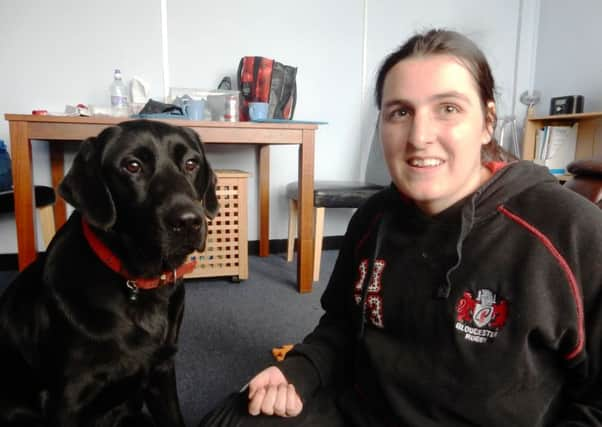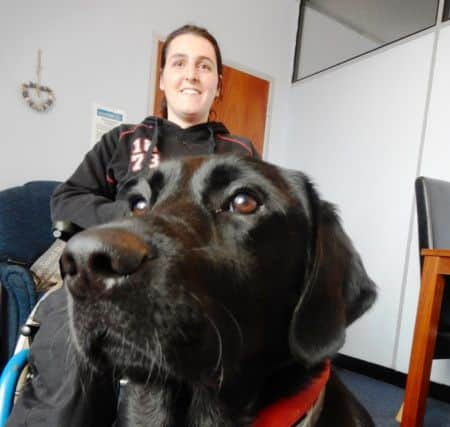How Stanley the support dog is set to give Amy her independence


But she says her life will soon be changing for the better when she starts training with a seizure alert dog provided by The Yorkshire Post’s Christmas appeal charity for 2015, Support Dogs.
Advertisement
Hide AdAdvertisement
Hide AdSeizure Alert Dogs can give a reliable warning up to 50 minutes before an epileptic seizure, giving their owner real control of their condition, enabling them to get the a place of safety and privacy.


Training alert dogs is just one of three programmes provided by Support Dogs, which has trained more than 200 support dogs for people across Yorkshire and the UK over the last 20 years. It also trains autism alert dogs and disability assistance dogs, which can help increase independence by supporting day to day tasks.
This year’s Yorkshire Post Christmas Appeal aims to raise enough money to pay for the training of a support dog for one Yorkshire family - which costs up to £20,000.
Miss Williams, 21, of Gloucester, has been waiting for an alert dogs for two years.
Advertisement
Hide AdAdvertisement
Hide AdShe has recently been matched by the charity with Stanley, an 18-month-old Labrador and will begin intensive training at Support Dogs’ Sheffield training centre on Monday.
Miss Williams has startle epilepsy, which began after she contracted chickenpox encephalitis as a young child. The condition means that when she is surprised or startled, for example by by a loud noise, she can have a short seizure.
“This can happen two or three times a day and sometimes at night,” she said. “My body jerks out on one side meaning that anything I’m holding can get thrown across the room.
“I hope my support dog will help me to take more control of my life, get out of the house more and make day to day tasks much more manageable without the need of other people. Independence may seem an overused word, but when you are reliant others it means everything to you.”
Advertisement
Hide AdAdvertisement
Hide AdSeizure Alert Dogs aren’t suitable for all people with epilepsy, but for those who do meet the criteria, like Miss Williams, they can be life changing.
For Miss Williams, Stanley will also provide self-confidence and companionship. Her health issues have left her reliant on carers and she struggles to leave the house alone in her wheelchair.
She said: “Loneliness can be something of a dark shadow that follows those with a disability around. I hope my support dog will be my light that will shine through this.”
Miss Williams said she is excited about the challenge that the training process brings.
Advertisement
Hide AdAdvertisement
Hide AdTraining with their new owners is one of the final steps in the thorough training journey each support dog goes through.
Rita Howson, chief executive of Support Dogs, said the fortnight of one-to-one training that Miss Williams and Stanley will now start follows a 12-week training programme one the dog has been identified as suitable.
She said: “When they are here with us, we are working on the relationship between the dog and the owner. Our trainers are very skilled at working on relationship bonding. They don’t come in for two weeks and expect to leave with everything up and running. That two weeks is almost like an instruction manual - for task work, working with commands and rewards, the relationship takes longer to cement.
“Once the dogs go to their new homes, the training continues there. They are monitored for four to six months to make sure they are reaching the required standards - the whole process takes between six to 12 months.”
- You can bid for an array of lots in the auction, and also donate direct. Visit www.supportdogs.org.uk/donate or Text DOGY15 £5 to 70070 to donate £5.